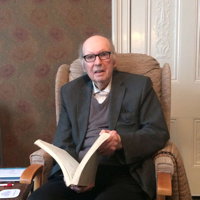- Piazzolla: María de Buenos Aires
- Giuseppe Pennisi
- electroacoustic music
- John Stainer
- Armstrong Gibbs
- Sowerby
- Charles Wuorinen: Electric Quartet
- Leroy Anderson: Sleigh Ride
Fun and Frolics
Mozart, Beethoven, Grieg and Mahler
from Benjamin Grosvenor,
the Hallé Orchestra and Gergely Madaras,
heard by MIKE WHEELER
The overture to Mozart's Die Entführung aus dem Serail sees him using the conventions of what passed for Turkish music in late-eighteenth-century Vienna to establish the opera's setting. Conductor Gergely Madaras encouraged the Hallé Orchestra to go for a clean, fresh sound, which was particularly translucent in the middle section - Royal Concert Hall, Nottingham, UK, 5 May 2019. In the quick outer sections, the additional percussion made its presence felt, but sounded oddly reticent, where something a bit wilder was called for.

Gergely Madaras. Photo © Marco Borggreve
But that same freshness and clarity informed the account of Beethoven's Piano Concerto No 2 that followed, with Benjamin Grosvenor making a sparkling solo entry, and conniving with the orchestra to bring a real frisson to the moments when the music turns unexpected corners. Grosvenor knows how to be playful without being in the least bit superficial, but also commands the kind of soft playing that compels your attention. His controlled spontaneity in the cadenza left a fair impression of how Beethoven's improvisations may well have sounded.
The operatic element in the second movement's make-up is something Beethoven clearly learned from Mozart, and Grosvenor's way with long, lyrical lines came into its own. The hushed concentration that everyone brought to the final section was compelling. The finale was full of bounce, spring, and boisterous good humour. Small subtle touches of rubato added extra spice, and there were also moments of sheer cheek, such as Grosvenor's deft sprays of notes leading into the section where Beethoven briefly displaces the rondo theme's metrical patterns. The slightly slower tempo here is not marked, but it did create a moment of comic puzzlement where everyone tries to figure out what's gone wrong. Once out of that thicket, it was fun and frolics all the way to the end. A thoughtful reading of one of Grieg's Lyric Pieces calmed things down.

Benjamin Grosvenor. Photo © 2017 Patrick Allen
If a symphonic opening could be described as freshness made audible, Mahler's First is a prime candidate. While the lower bass part's contribution to the sustained octave A at the start was not as clear as Mahler asks for, Madaras and the orchestra touched in the splashes of colour - the off-stage trumpets, crooning horns, and impudent woodwind - vividly. The way they eased gently into the quicker section, starting with the quotation of the second song from Mahler's Lieder eines Fahrenden Gesellen, was a delight. In the repeat of this section, a moment of bass clarinet counterpoint was touched in more firmly than I remember hearing in other performances. All through, the music's buoyancy was tinged with an underlying sadness, but the big breakthrough, when it came, had the horns positively whooping with delight.
The second movement was spirited and vigorous, with just the right amount of heft. In contrast, the waltz-like trio section slipped easily between parody, affection and nostalgia. The performance of the third movement trod a fine line between lament and parody, from the forlorn bass solo onwards. It brought out the way the music's Jewish inflections are not limited to the Klezmer-like interruptions later which, in themselves, came closer to a cabaret-like atmosphere than I've previously heard. The delicacy of the gentle middle section, another Fahrenden Gesellen reference, had an almost hallucinatory quality, while the withdrawal at the end was positively spooky.
The volcanic start of the finale split the air, as it should, flashing, crackling and seething with fury. The calmer following passage was characterised by string tone that was warm but also focused. Conductor and players didn't short-change the music's multi-faceted character, but it is so easy for it to seem like a rag-bag succession of episodes. Here, there was a firm structural grasp ensuring that it emerged all of a piece. At the end, the horns stood, as Mahler asks - a theatrical touch, no doubt, but reinforcing a thrilling sense of arrival.
Copyright © 14 June 2019
Mike Wheeler,
Derby UK





